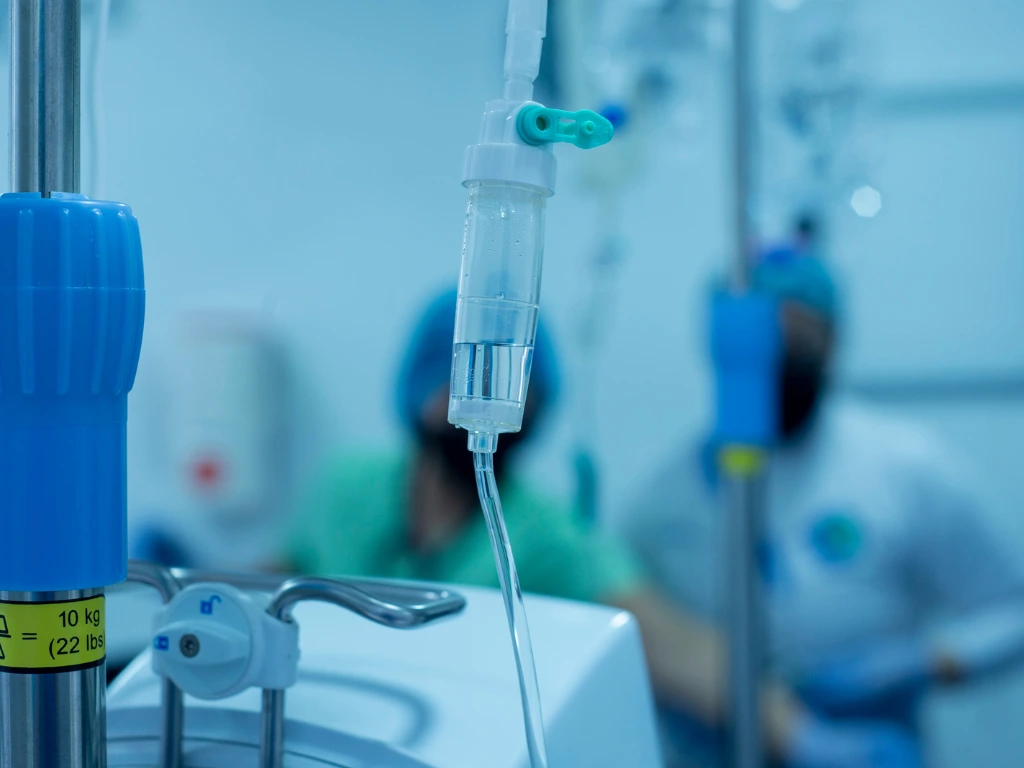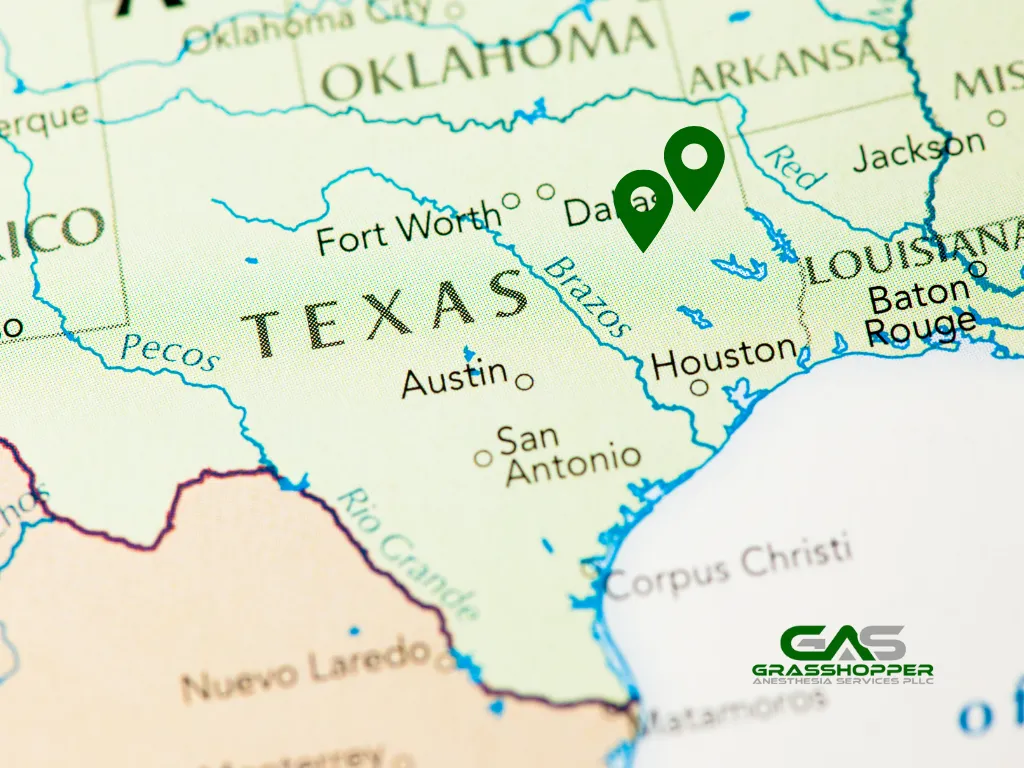by admin
Share
by admin
Share

Anesthesia allows patients to undergo procedures without pain or discomfort — playing a crucial role in modern medicine. Yet despite its importance and prevalence, there are many myths and misconceptions about anesthesia that continue to circulate. Here are some common myths about anesthesia — debunked.
Understanding the Truth About Anesthesia
Knowledge about anesthesia helps ease the minds of patients and caretakers. Misconceptions that surround anesthesia are often a result of an individual’s perception or experience, or stem from outdated protocols and procedures. But even the biggest myths about anesthesia can be broken down into clear, reassuring facts based on today’s medical standards and practices.
Myth #1: You Can Wake Up During Surgery
One of the most widespread fears is that a patient might become conscious and aware in the middle of a procedure. While “anesthesia awareness” has been portrayed in movies and TV shows, it is extremely rare in real life. In fact, it only occurs in roughly 1-2 cases per 1,000 high-risk surgeries, and even less for routine procedures.
These rare events only happen under general anesthesia, and usually occur during emergency surgeries or high-risk procedures where the usual amount of anesthesia may need to be lessened. Certified Registered Nurse Anesthetists (CRNAs) and anesthesiologists carefully monitor vital signs, depth of anesthesia, and response throughout the procedure to ensure you stay fully asleep and pain-free.
Myth #2: Anesthesia Is the Same for Everyone
Anesthesia is highly personalized. Your anesthetic plan depends on your age, weight, medical history, underlying conditions, medications, and the type of procedure you’re having. This customized approach helps ensure maximum safety and effectiveness. Your anesthesiologist or CRNA will meet with you shortly before your procedure to discuss your needs and your anesthetic plan.
This individualized approach means that you may receive a different type of anesthesia than someone else you know — or even than the last time you underwent a procedure. Overall health and other risk factors can change daily for some patients, which is why it’s important to answer all of the anesthesia team’s pre-op questions accurately.
Myth #3: Anesthesia Is More Dangerous Than Surgery
While all medical procedures carry some level of risk, modern anesthesia is safer than ever when administered by trained professionals. Most complications related to anesthesia are minor and temporary, such as nausea or a sore throat. Serious complications are very rare, especially in healthy patients undergoing routine surgeries.
Pre-surgical screenings help identify potential risks so that your anesthesia provider can take proactive steps to prevent complications. Your provider’s skill and knowledge combined with state-of-the-art monitoring and administration equipment makes today’s anesthesia extremely safe and effective.
Myth #4: You Should Avoid Eating or Drinking So You Don’t Choke
This one is partially true, but the reasoning behind it is often misunderstood. Patients are instructed to fast before anesthesia to reduce the risk of aspiration — which isn’t the same as choking. Aspiration occurs when the stomach contents enter the lungs, whereas choking is an obstruction of the airway.
Since anesthesia can relax the muscles that typically hold food in the stomach, patients are instructed to fast as a precaution. Your anesthesia provider will give you specific fasting instructions based on your procedure and risk factors.
Myth #5: Anesthesia Causes Long-Term Memory Loss
Some people fear that undergoing anesthesia, especially later in life, could lead to lasting memory problems. However, there is no strong evidence to support the claim that anesthesia causes long-term cognitive decline in healthy individuals.
While some patients may experience temporary confusion or memory lapses after surgery — known as postoperative cognitive dysfunction (POCD) — this is generally short-term and influenced by a combination of factors like age, underlying conditions, and the complexity of the surgery.
Myth #6: You’ll Definitely Feel Sick After Anesthesia
Nausea and vomiting are potential side effects of anesthesia, but they are not guaranteed. CRNAs and anesthesia providers take steps to prevent this by selecting medications that suit your needs and by offering anti-nausea treatments before, during, or after surgery.
Procedure length and type and a patient’s overall health are the most common reasons for nausea to occur after receiving anesthesia. And while nausea and vomiting may not be pleasant, it’s short-lived — usually resolving within 24 hours of your procedure. Letting your provider know if you’ve experienced nausea with anesthesia in the past can help them tailor your care and minimize discomfort.
Myth #7: Only Doctors Administer Anesthesia
Many people don’t realize that CRNAs (Certified Registered Nurse Anesthetists) are advanced practice providers who are licensed and highly trained to administer anesthesia. In fact, CRNAs deliver more than 50% of all anesthesia in the United State — and in rural and underserved areas, they are often the sole providers.
CRNAs work both independently and alongside anesthesiologists to deliver expert, compassionate care from pre-op through recovery.
Have Questions?
It’s completely normal to have questions or concerns before surgery. Talking openly with your anesthesia provider can help ease your mind and ensure that you feel confident in your care. Most patients find that once their questions are answered, their anxiety about anesthesia decreases significantly.
Trust Grasshopper Anesthesia
At Grasshopper Anesthesia, we believe that informed patients are empowered patients. Our CRNAs provide expert, compassionate care without the stress of on-call nights, weekends, or holiday shifts — so we’re rested and focused on you. Whether you’re prepping for a procedure or curious about how anesthesia works, our team is here to make the process smooth, safe, and worry-free. Contact us and put your mind at ease — because your comfort and safety are always our top priorities.
While rural hospitals are the backbone of healthcare access for countless Americans, these facilities continue to face a persistent and complex challenge: maintaining reliable anesthesia coverage. From staffing shortages to fluctuating surgical volumes and even limited recruitment avenues, rural facilities struggle to deliver consistent, high-quality care. Gaps in anesthesia coverage lead to a host of
Finding the right balance between personal and professional life can be challenging, especially for anesthesia providers. In today’s fast-paced healthcare climate, the demand for reliable professionals is growing faster than ever. At Grasshopper Anesthesia Services, our goal is to bridge the gap between work and life. We are committed to providing flexible placement opportunities that
Access to quality healthcare can look very different depending on where you live. While urban areas often have large hospitals and specialized providers nearby, many rural communities struggle with limited resources and long travel times for care. Grasshopper Anesthesia CRNAs transform communities by bridging the divide between quality healthcare and rural areas from Gonzales to
Not all CRNA jobs are created equal. The right opportunity isn’t just about location or pay, it’s about aligning your skills, lifestyle, and career goals so you can thrive in the long run. Going above and beyond just filling positions, Grasshopper Anesthesia matches CRNAs with the roles that fit them best. Learn about our process




